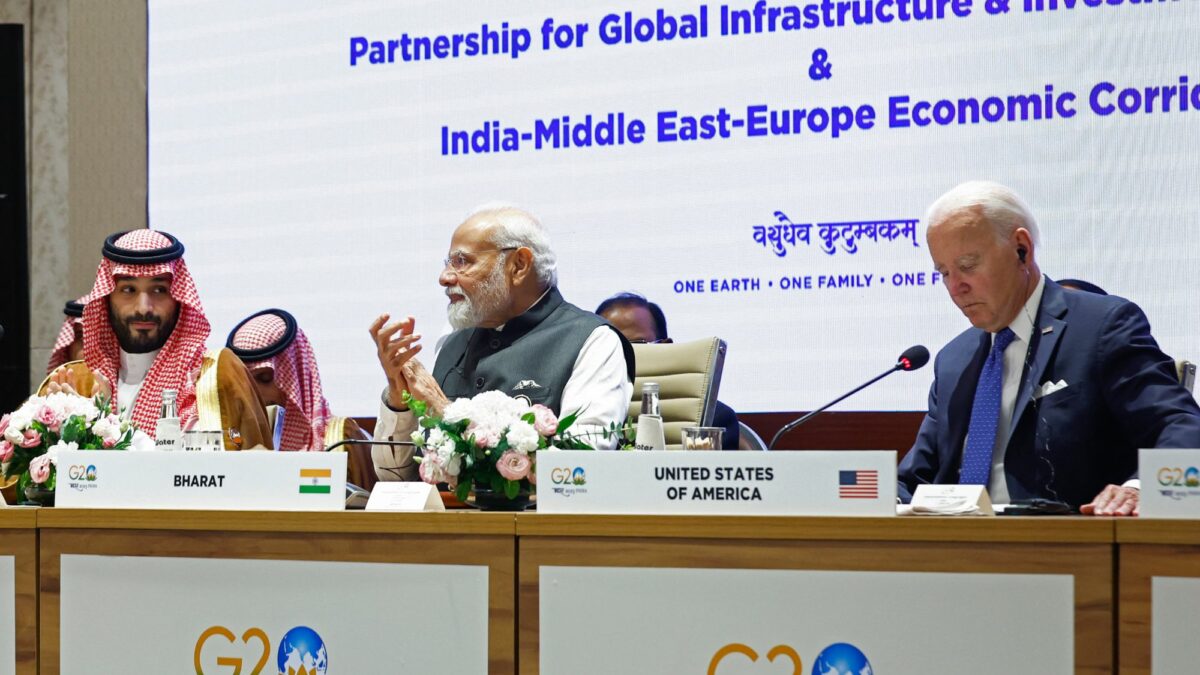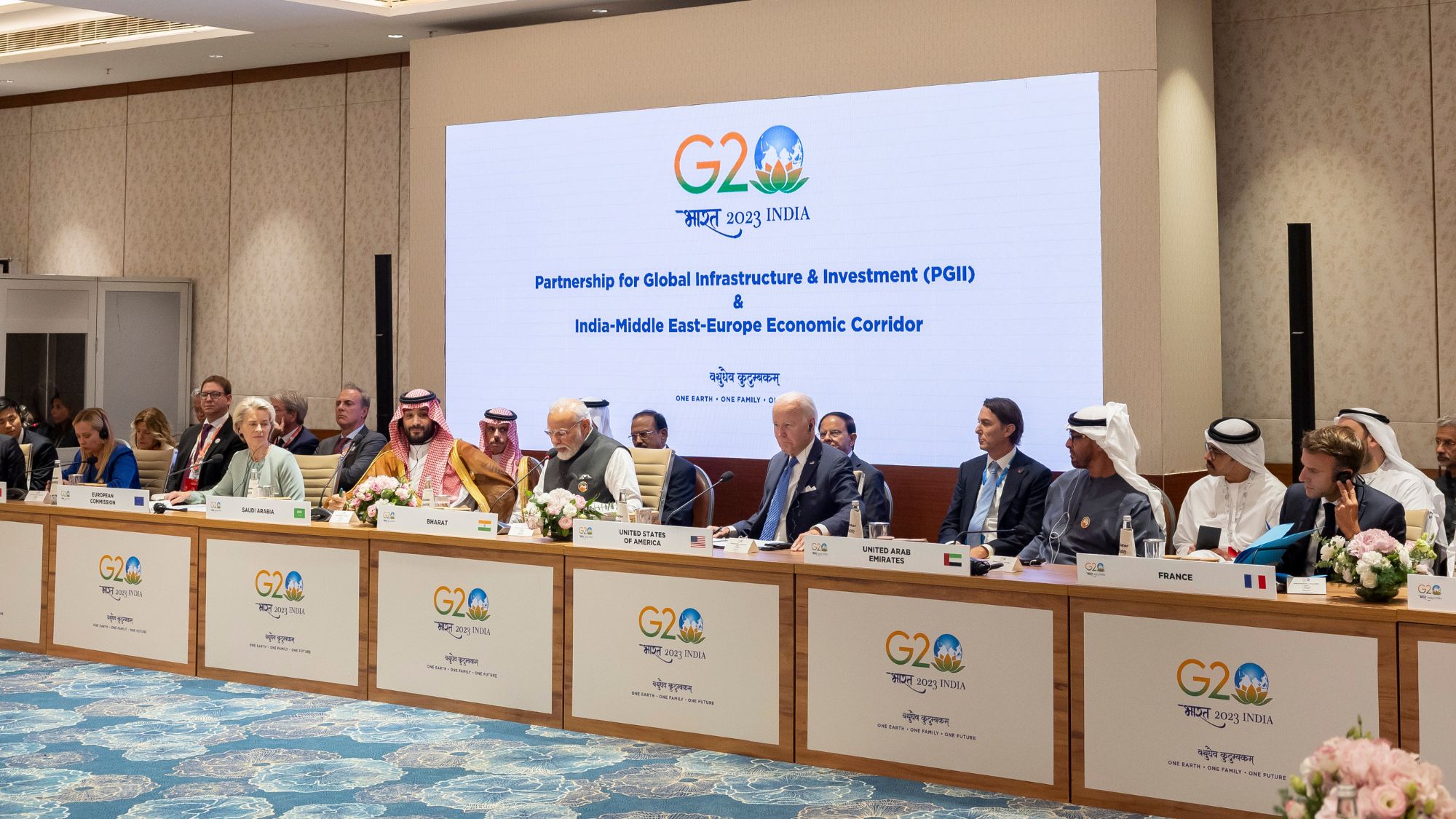New Delhi, India — A diverse alliance of nations has unveiled ambitious plans to establish a modern-day Spice Route connecting Europe, the Middle East, and India, aiming to boost trade ties with potentially far-reaching geopolitical implications.
The United States, Saudi Arabia, the European Union, the United Arab Emirates, and others launched the initiative on the sidelines of the Group of 20 summit in New Delhi. The plan aims to link railways, ports, electricity and data networks, and hydrogen pipelines.
Though primarily focused on trade, the initiative could have broader implications, including fostering contacts between long-time foes Israel and Saudi Arabia.
Signatories hope the scheme will integrate India’s vast 1.4 billion-person market with Western countries, counterbalance China’s extensive infrastructure investments, stimulate Middle Eastern economies, and help normalize relations between Israel and Gulf Arab states.
Also Read G20 treads lightly on Ukraine war, climate issues
“This is a real big deal,” said U.S. President Joe Biden at the launch event, labeling the plan “historic.”
European Commission President Ursula von der Leyen described the so-called India–Middle East–Europe economic corridor as “much more than ‘just’ a railway or a cable.”
“It’s a green and digital bridge across continents and civilizations,” she added.
UAE vows to cooperate on India-Middle East-Europe Economic Corridor NEW DELHI -- The United Arab Emirates will collaborate with the governments of Saudi Arabia, European Union member states, India, and the United States on the India-Middle East-Europe Economic Corridor (IMEC). The announcement was made in the presence of the UAE President Sheikh Mohamed bin Zayed Al Nahyan at the 18th G20 Heads of State and Government Summit in New Delhi, India, where the UAE is participating as a guest of honor. The corridor aims to significantly improve connectivity and integration among participating countries and will consist of two different routes: the east corridor connecting India to the Arabian Gulf and the northern corridor linking the Arabian Gulf to Europe. These cross-border ship-to-rail transit corridors will lower shipping costs across the network and facilitate trade in goods and services to, from, and between the UAE, Saudi Arabia, India, and Europe. Participants will also evaluate the potential for electricity and clean hydrogen exports to enhance regional supply chains and connectivity, as part of joint efforts to reduce greenhouse gas emissions and incorporate environmental conservation into the initiative. Participants plan to establish coordinating bodies to address various technical, financial, legal, and regulatory issues. In the near future, participants will meet to further the design and implementation of the transit network. (WAM)
One proposed project aims to link railway and port facilities across the Middle East, potentially accelerating trade between India and Europe by up to 40%.
Pramit Pal Chaudhuri, South Asia practice head at the Eurasia Group, noted that the initiative could bypass the Suez Canal, a current bottleneck in global trade, by routing shipping containers by rail from Dubai to Haifa in Israel and then on to Europe.
Game Changer
The plan aligns well with several of Washington’s Middle East objectives. The Biden administration is actively encouraging Riyadh to normalize ties with Israel.
Israel’s Prime Minister Benjamin Netanyahu said the initiative would “reshape the face of the Middle East,” adding that Israel would be a central hub in this economic venture.
The U.S. involvement could also mend strained ties between Riyadh and Washington, which have been damaged due to the U.S.-Iran nuclear deal and the 2018 murder of journalist Jamal Khashoggi.

According to details seen by AFP, the economic corridor would develop infrastructure for the production and transport of “green hydrogen” and strengthen telecommunications through a new undersea cable.
French President Emmanuel Macron emphasized that work is now needed to make the plan a reality.
Michael Kugelman, South Asia Institute director at The Wilson Center, said the plan could be a significant counter to China’s Belt and Road Initiative, which has expanded Chinese influence globally.
“If finalized, it would be a game changer that strengthens connectivity between India and the Middle East and aims to counter the BRI,” Kugelman posted on X, formerly known as Twitter.








